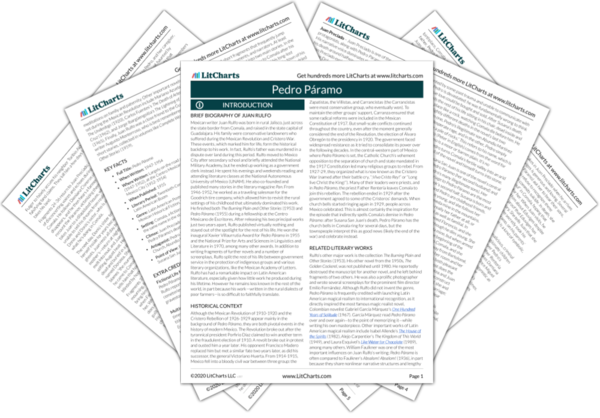Don/Doña Quotes in Pedro Páramo
People began arriving from other places, drawn by the endless pealing. They came from Contla, as if on a pilgrimage. And even farther. A circus showed up, who knows from where, with a whirligig and flying chairs. And musicians. First they came as if they were onlookers, but after a while they settled in and even played concerts. And so, little by little, the event turned into a fiesta. Comala was bustling with people, boisterous and noisy, just like the feast days when it was nearly impossible to move through the village.
The bells fell silent, but the fiesta continued. There was no way to convince people that this was an occasion for mourning. Nor was there any way to get them to leave. Just the opposite, more kept arriving.
[…]
Don Pedro spoke to no one. He never left his room. He swore to wreak vengeance on Comala:
“I will cross my arms and Comala will die of hunger.”
And that was what happened.










